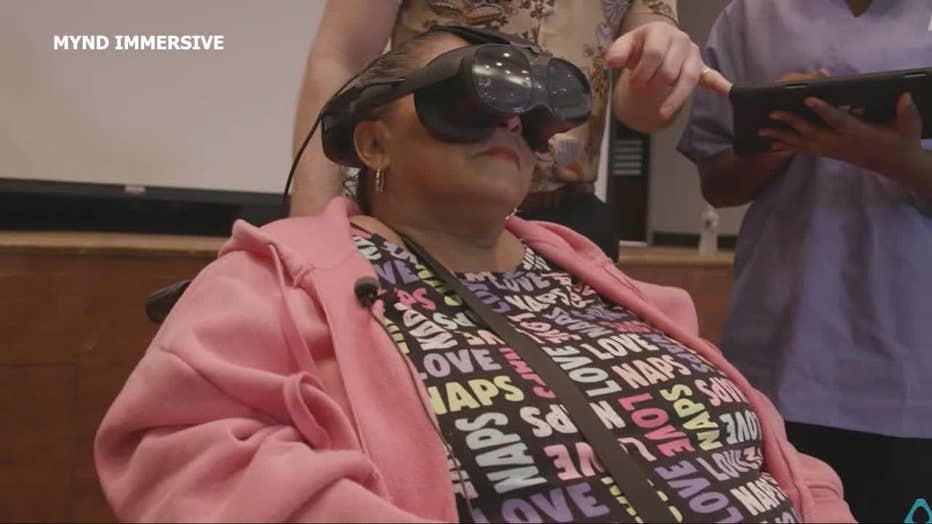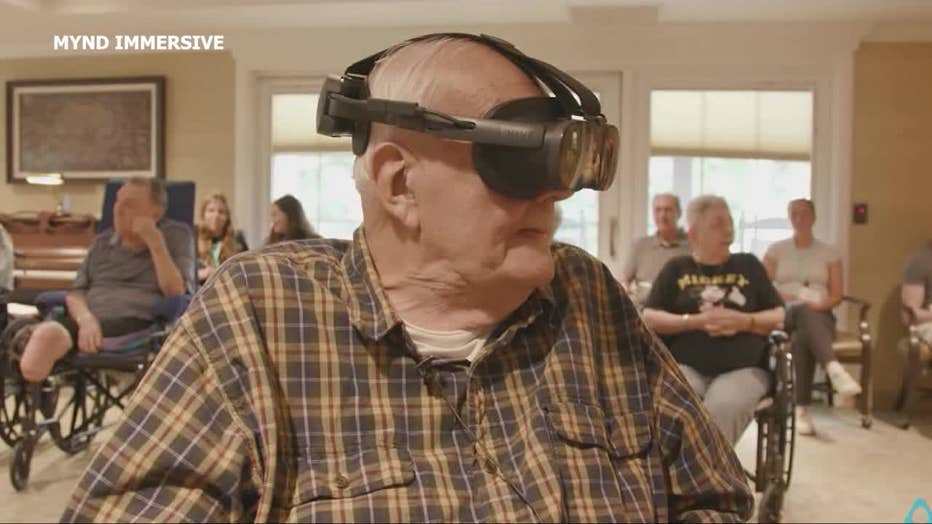Virtual reality taking senior citizens for a trip around the world - and beyond

NYC seniors experience virtual reality
Seniors in New York City are slipping on virtual reality headsets to transport themselves to another world. And as FOX 5 NY's Arthur Chi'en shows, the experience is bringing more than just fun to the residents.
NEW YORK CITY - "Barcelona, a puppy farm..."
Cecilia Ferreiro has been places and lived life.
"I was on stage at the Lion King, I visited Rome, and I also went skydiving."

And Lorrie’s also been places too … well, not quite really ... virtually we’re talking. Both of them are residents at the New Jewish Home on the Upper West Side – the first in the city to receive a new virtual reality technology being used to improve cognition and the lives of seniors. For Ferreiro, a trip to Barcelona using VR reconnected her to her late husband.
"Just the fact that we could go to Barcelona, where I went with my husband before he died … it just brought me back," she said.
And Lorrie James went skydiving, conquering her fear of heights, saying: "Just the experience, just the thrill, just the feeling of it, it was spectacular."
Mynd Immersive is the name of the technology of the Dallas-based company, and it’s being installed in 60 facilities for seniors across New York and New Jersey. Paid for by multiple sponsors, including AT&T and HTC VIVE, it’s being provided to seniors for free. Chris Brickler you could say, is the mind behind Mynd.

"It really provides seniors a way to exit their four walls of their existence that they're in today," Brickler tells FOX 5 NY. "Take them to new places, reconnect them with memories, reconnected with energy, live music, museum tours, trips to international space stations, swimming with dolphins or whale sharks."
Brickler points to proven science that getting seniors to reminisce about their past is a strong, non-pharmaceutical way to fight dementia. Improving cognitive health, emotional and behavioral health – they’re even finding physical benefits.
There can be too much of a good thing with this technology. That’s why it’s limited to 10 to 15 minute experiences. Both the people behind the technology and those hosting it say while it’s very effective in opening the portal of a seniors mind, the real benefits come with what they do with it afterwards.
Dr. Jeffrey Farber is the president and CEO of New Jewish Home and says: "The important part is to have the technology enhance real life interactions, strengthen those real-life experiences. Give them shared experiences they can then talk about."

